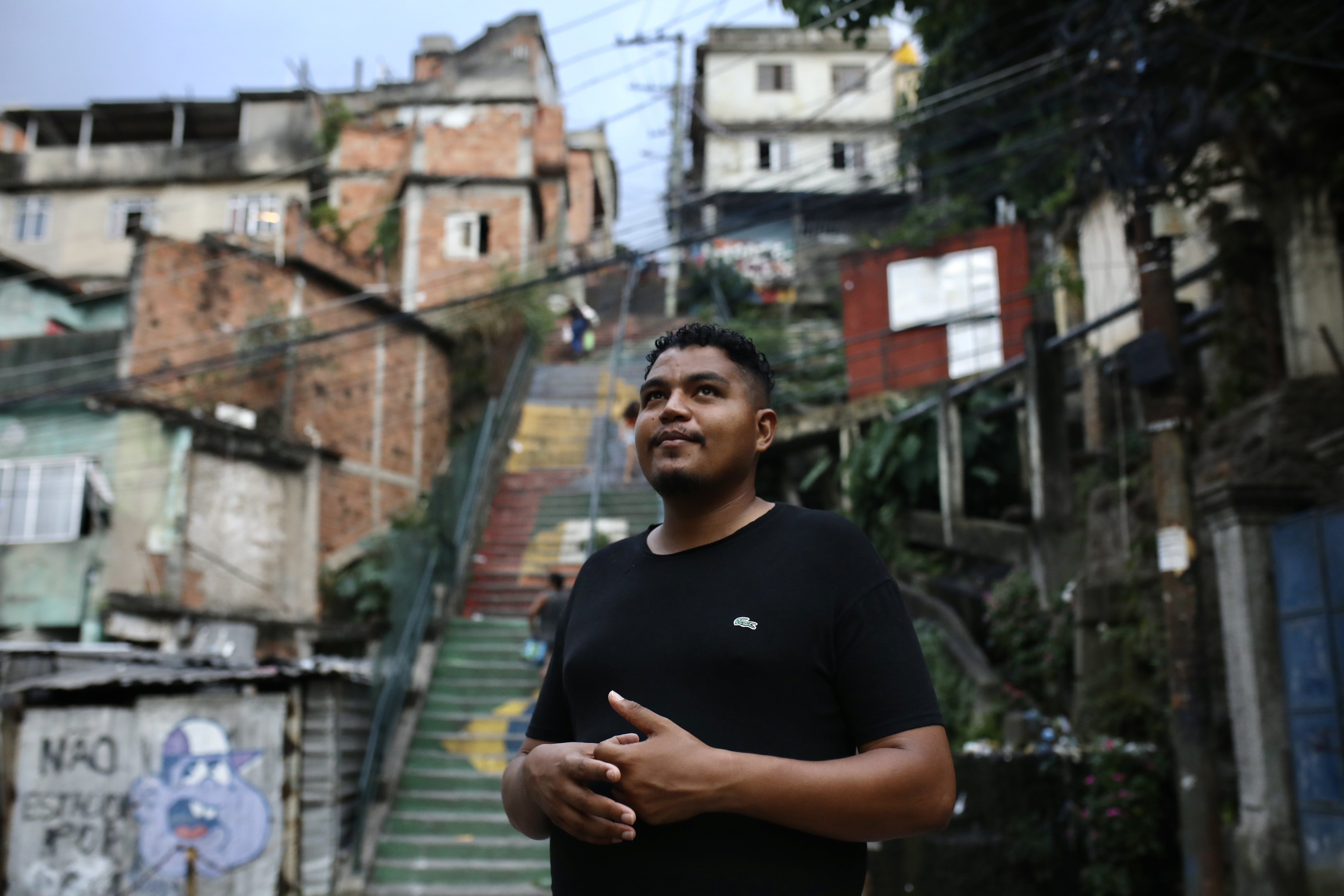
Rio de Janeiro, Brazil – Cosme Felippsen’s nephew was 17 years old when he was killed by Brazil’s military police in a Rio de Janeiro alley nicknamed the Gaza Strip.
“Almost every favela in Rio has an area residents call Gaza,” Felippsen said, pointing to the bullet holes along the alley walls. Residents have used the name for at least 15 years, he added. “It designates the area where most of the gunfire is concentrated at any given time.”
The neighbourhood where Felippsen’s nephew, José Vieira, died in 2017 is called Morro da Providência. It is one of hundreds of impoverished communities — or favelas — strewn across the city.
Activists and residents say the violence they have seen in the favelas has given them unique insight into the urban warfare currently unfolding in Gaza, a Palestinian territory under Israeli siege. And the parallels they perceive are motivating them to take action.
“Militarisation, armed groups executing inhabitants — many things that happen in Palestine also happen in the favelas of Rio de Janeiro,” said Felippsen, a local politician and tour guide who specialises in Black history.
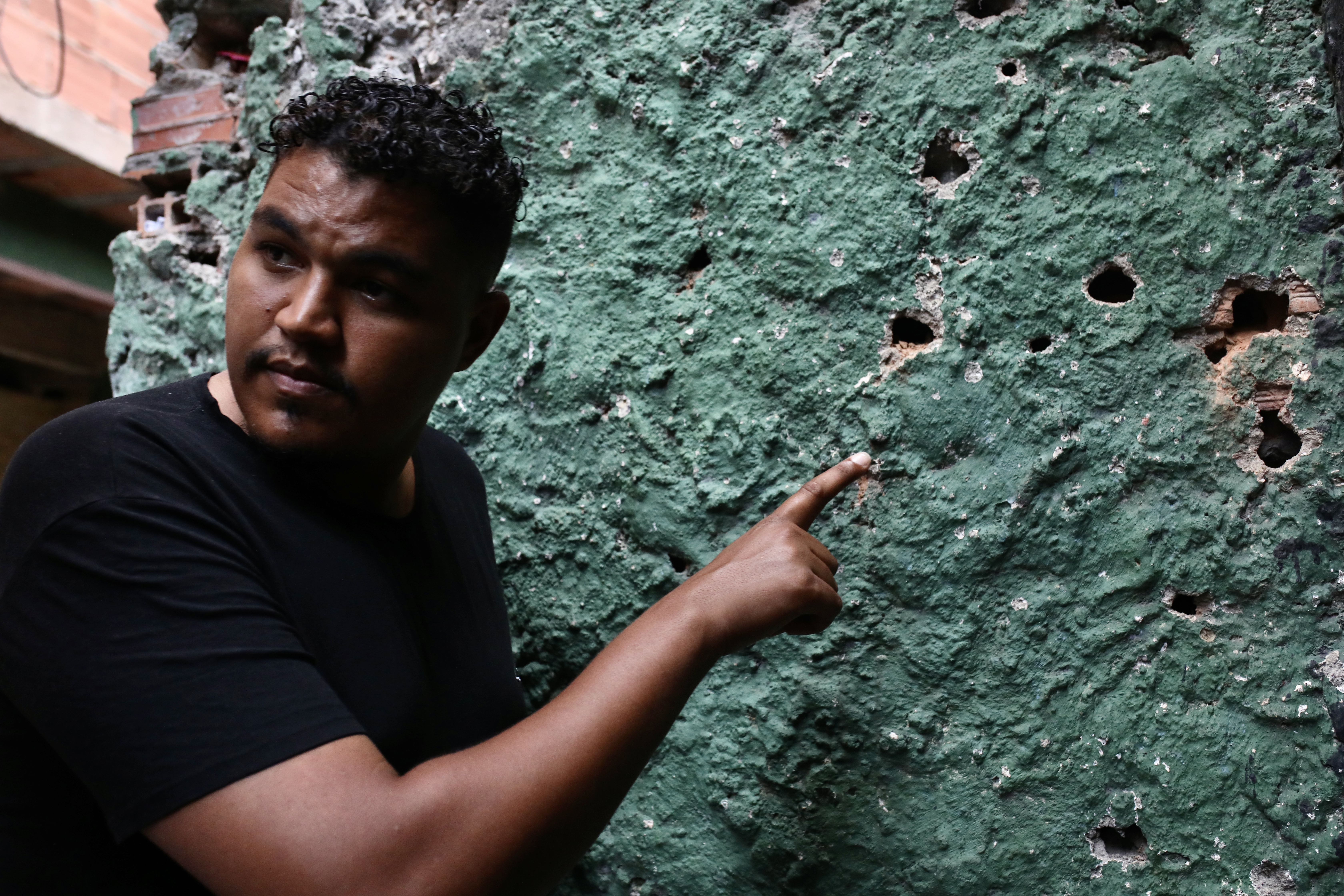
Leftist groups, some of whom have ties to Brazil’s favelas, have organised protests across the country since the Israel-Hamas war began on October 7.
In the weeks since, more than 13,000 Palestinians in Gaza have been killed amid an Israeli bombing campaign and a blockade that cut off essential supplies to the densely populated territory. About 1,200 Israelis were killed in the Hamas attacks that started the war.
UN experts have warned that the Palestinian people are at “grave risk of genocide”.
Adriana Odara Martins, who lives in the Baixada Fluminense neighbourhood on the outskirts of Rio, was among the protesters calling for a ceasefire in front of the local United States consulate in October.
Her community, she explained, was frequently the target of police operations, and she found her experiences reflected in recent media coverage of Gaza.
“We are here in solidarity because we have empathy. We know what it is like to live under violence,” said Martins, who is part of the feminist group Articulation of Brazilian Women and a coordinator for the Unified Black Movement.
Police in Brazil killed more than 6,400 people last year, 83 percent of them Black, according to the nonprofit Brazilian Public Security Forum.
The violence is particularly acute in the favelas, tightly packed urban environments where a majority of residents are Black or mixed race.
Palestinians and residents of favelas are commonly perceived as “racially subaltern populations”, said Bruno Huberman, a professor of international relations at the Pontifical Catholic University of Sao Paulo.
They share a history of systematic repression, expulsion from their homes, confinement in segregated spaces, subjugation and exploitation, he told Al Jazeera.
“Both populations are subjected to infinite wars: the Palestinians to the war on terror and the favela populations to the war on drugs,” Huberman said.
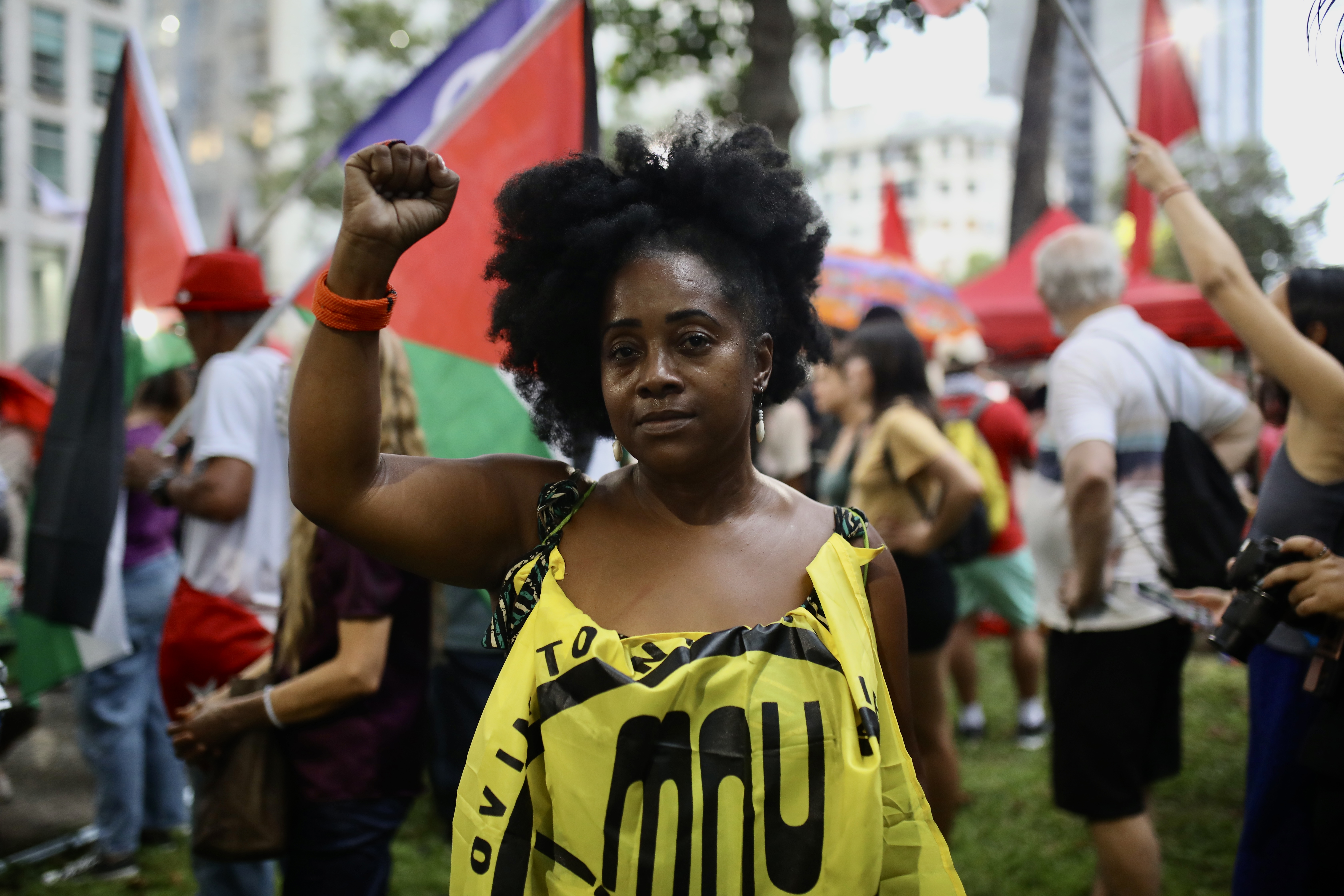
While hesitant to compare the violence afflicting the two groups, Fatima Ouassak, a French political scientist, author and activist, said she too had noticed similarities in how favela residents and Palestinians were treated in their respective homelands.
“These populations are made to feel illegitimate where they live, as if they were not at home or welcome where they are,” she told Al Jazeera. This feeling, Ouassak added, extended to other Arab and African diaspora communities in places like France.
The perceived similarities have led some social movements in the favelas to identify explicitly with the Palestinian struggle.
Every year since 2016, activists in Rio organise “Black July”, an event that brings together populations facing racism and militarisation for activities and discussions.
The issue of Palestinian rights often features in these events. This year’s Black July included a webinar from two Brazilian activists — Gizele Martins and Thais Siqueira — who had recently returned from a trip to the occupied West Bank.
“I thought we were the only ones suffering in the favelas,” Martins said during the webinar. A resident of Rio’s Maré favela, she first visited the West Bank in 2017. “As soon as I got there, I saw that everything was very similar — but much more tense.”
One of the similarities she pointed out was the security wall Israel constructed through Palestinian communities in the West Bank. In August, Rio de Janeiro state Governor Claudio Castro announced the construction of a wall bordering certain favelas, also in the name of security.
“Wall of shame! Rio’s apartheid wall,” Martins said on Instagram after the announcement, evoking the West Bank barrier.
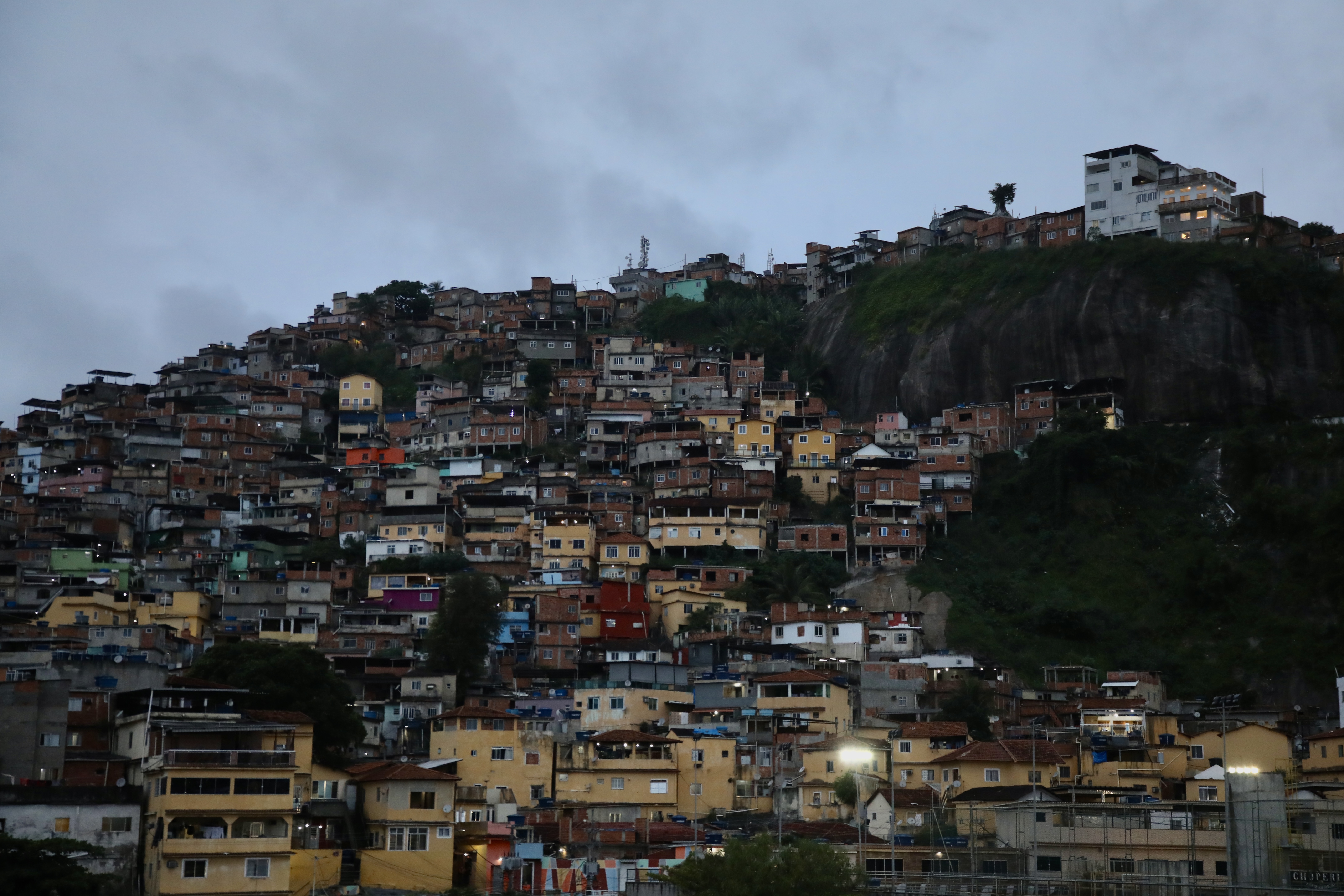
But the identification between the two groups has its limits. Mike, a pro-Palestinian protester who declined to give his surname, said there was more talk in support of Israel than Palestine in the favela where he resides, Barreira do Vasco.
“I sometimes feel a bit alone in backing Palestine,” Mike told Al Jazeera at the demonstration in front of the US consulate in Rio de Janeiro.
In recent years, favelas have seen a rise in evangelical Christianity, a religious movement that identifies strongly with Israel.
Though Brazil has the largest Catholic population in the world, evangelicalism is believed to be its fastest-growing religious group. Roughly 30 percent of the population identifies as evangelical.
Favelas in particular are seen as hotbeds for the church’s growth, as religious leaders reach out to impoverished residents with social services like job opportunities and education.
Guilherme Casarões, a political scientist at the Getulio Vargas Foundation, a think tank and university, explained that evangelicals are more likely to sympathise with Israel due to their view that the country is a holy place to be protected.
“The idea is that Jesus Christ will only return to Earth to save humanity when the people of Jerusalem have converted to his word,” Casarões said.
That view, Casarões added, has translated into “unconditional alignment with Israel” politically.
“Even if there is some criticism of the killing of innocent Palestinians in Gaza, the predominant view is that Israel has the right to defend itself in this battle between good and evil,” he said.
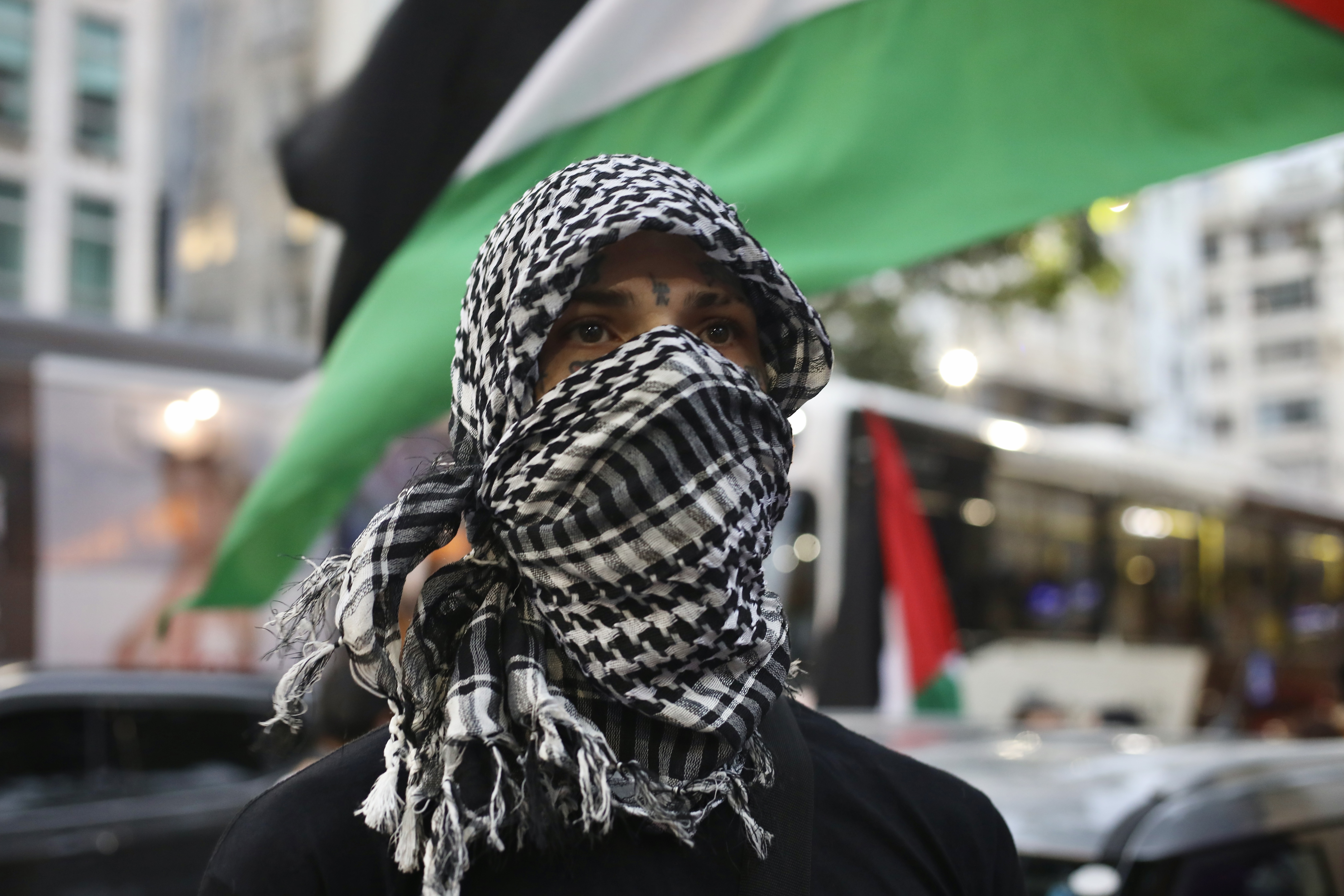
That viewpoint clashes with the stance of current left-wing President Luiz Inácio Lula da Silva.
Over the past month, Lula has been sharply critical of Israel’s relentless bombardment of the Gaza Strip, denouncing the Palestinian bloodshed.
“This is not a war. This is a genocide,” Lula told journalists at the Planalto presidential palace in Brasilia on October 25. He also used a social media address on Tuesday to call Israel’s actions “equivalent to terrorism”.
In his previous two terms in office, from 2003 to 2010, Lula was likewise outspoken in his defence of Palestinian rights.
Latin America’s biggest democracy has for decades called for a two-state solution to the conflict, one that would allow the creation of a separate Palestinian state alongside Israel.
In 2010, Lula took a step towards that goal, recognising Palestine as an independent state based on 1967 borders. The Israeli government responded with a statement expressing its “sadness and disappointment” about the decision.
Experts say Lula’s rhetoric echoes that of other left-leaning Latin American leaders. Bolivia cut official ties with Israel over the war in Gaza, while Chile and Colombia have recalled their ambassadors in Tel Aviv for consultations.
By contrast, right-wing Latin American leaders have sympathized more openly with Israel, according to Casarões. They also tend to enjoy more evangelical support.
Former far-right President Jair Bolsonaro stopped short of changing Brazil’s longstanding support of the two-state solution, though he did make public statements denying Palestine was a country.

When Bolsonaro and Lula went head to head in the 2022 presidential race, the favela vote became key, given how narrow the margins between the two leaders were.
Residents in the favelas constitute a major voting bloc. An estimated 16 million people live in poorly resourced urban areas like favelas, and in Rio de Janeiro alone, at least a quarter of the population lives in areas considered favelas.
Lula ultimately edged out Bolsonaro in the final vote. In the weeks before the election, the nonprofit G10 Favelas/Favela Diz found that Lula held a seven-point lead over Bolsonaro among favela voters, with 38 percent support to the far-right leader’s 31 percent.
Whether Lula’s foreign policy stance will affect that support remains to be seen. But Huberman, the international relations professor, said Brazil’s economy and quality of life are the biggest factors to sway the vote.
However, some Palestinian rights supporters would like to see Lula do more to address the ongoing conflict.
Fransergio Goulart, a coordinator for the Right to Memory and Racial Justice Initiative in Rio de Janeiro, said he observed Lula’s popularity decreasing among his fellow activists. They felt the left-wing president was not taking a strong enough stance against Israel’s military offensive.
“Lula should position himself against Israel, and he hasn’t done that,” Goulart said.
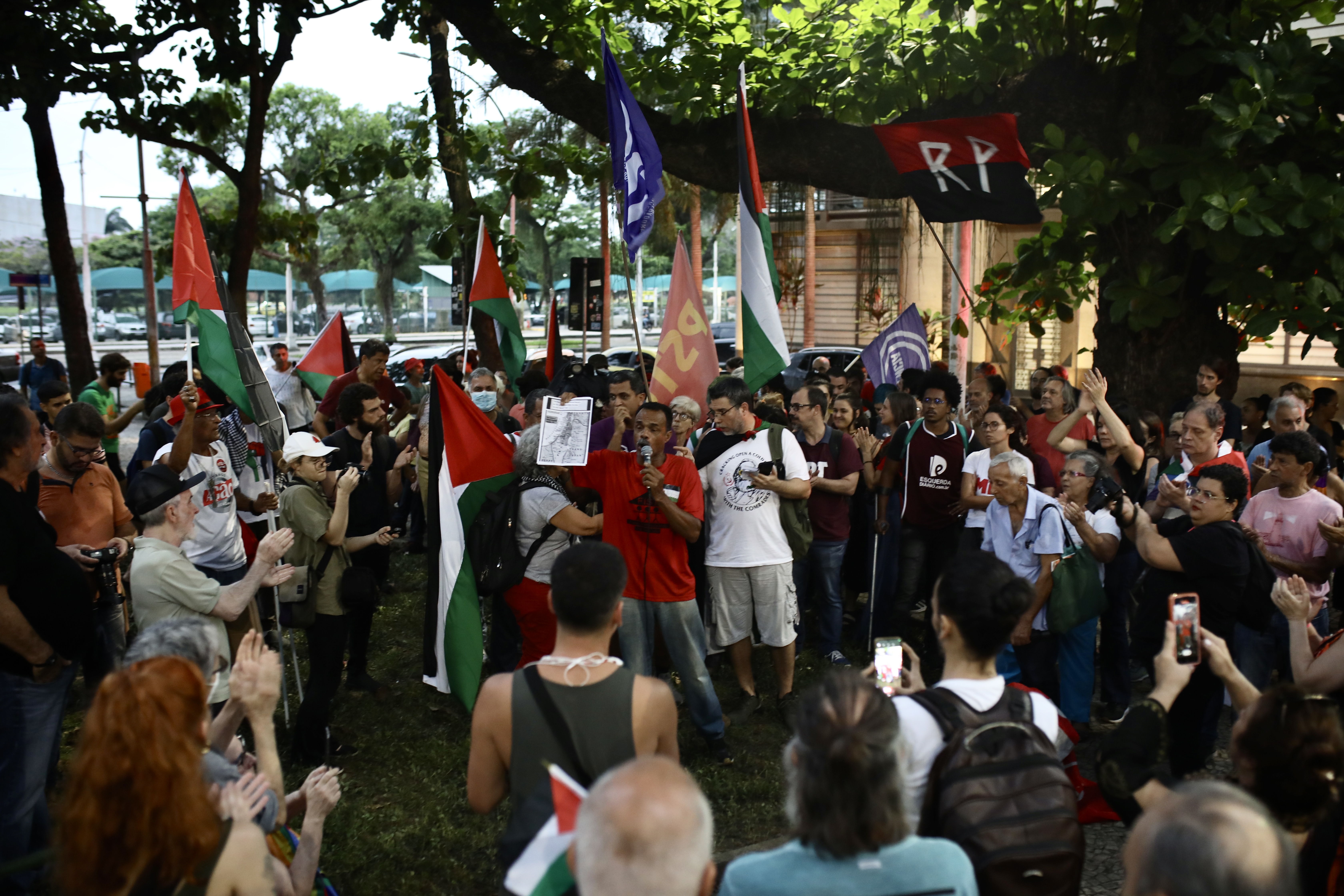
Part of the issue is Brazil’s ongoing ties to Israel’s defence industry. Brazil has long purchased weaponry and armoured vehicles from Israel to bolster its own security capabilities.
In 2013, for instance, the state of Rio de Janeiro signed an agreement with the Israeli company Global Shield to buy armoured vehicles for its military police, local newspaper Estadão reported at the time.
And in October, Sao Paulo’s military police showcased 7.62mm calibre Light Negev machine guns bought from Israel Weapon Industries Ltd in 2020, the local news organization Ponte reported.
This kind of weaponry has been used in the favelas in the name of combating gang violence.
“For years, military technologies tested on Palestinians have been used in Brazil,” Goulart wrote in an article in March, referencing efforts to crack down on gangs in the favelas ahead of major sporting events.
Huberman noted that ties between Israel and Brazil have actually deepened when Lula’s Workers’ Party was in power, particularly in the area of security cooperation.
Last month, for instance, Brazil’s Chamber of Deputies — with the backing of the Workers’ Party — voted to renew three cooperation agreements with Israel, including one to combat organised crime.
This creates a contradiction, Huberman said, between Lula’s stance on Israel’s military offensives and his embrace of Israel as a domestic security partner.
“Palestinians have asked for an end to military relations [between Brazil and Israel],” Huberman said, “because there is no point in Brazil asking for peace but buying Israeli weapons that sustain the occupation.”







